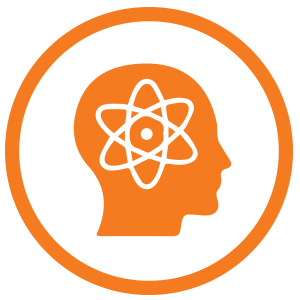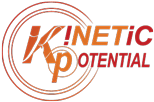Biofuels/Biodiesel Technology and Product Development Managers
What They Do: Define, plan, or execute biofuels/biodiesel research programs that evaluate alternative feedstock and process technologies with near-term commercial potential.
Also Called: Analytical Research Program ManagerBiodiesel Division ManagerBiofuels ManagerBusiness Development and New Technology ManagerLaboratory Manager (Lab Manager)Project Development Director
Resource Details
On The Job
- Design or conduct applied biodiesel or biofuels research projects on topics, such as transport, thermodynamics, mixing, filtration, distillation, fermentation, extraction, and separation.
- Analyze data from biofuels studies, such as fluid dynamics, water treatments, or solvent extraction and recovery processes.
- Prepare, or oversee the preparation of, experimental plans for biofuels research or development.
- Provide technical or scientific guidance to technical staff in the conduct of biofuels research or development.
- Propose new biofuels products, processes, technologies or applications based on findings from applied biofuels or biomass research projects.

Technology Skills

| Name | Example |
|---|---|
| Object or component oriented development software |
|
| Presentation software |
|
| Enterprise resource planning ERP software |
|
| Analytical or scientific software |
|
| Development environment software |
|
Tools Used
| Name | Example |
|---|---|
| Remote reading thermometers |
|
| Standard fermentation units |
|
| Dissolved oxygen meters |
|
| Bi distillation units |
|
| Carbon filtration equipment |
|

 Knowledge
Knowledge
| Name | description |
|---|---|
| English Language | Knowledge of the structure and content of the English language including the meaning and spelling of words, and rules of composition and grammar. |
| Chemistry | Knowledge of the chemical composition, structure, and properties of substances and of the chemical processes and transformations that they undergo. This includes uses of chemicals and their interactions, danger signs, production techniques, and disposal methods. |
| Engineering and Technology | Knowledge of the practical application of engineering science and technology. This includes applying principles, techniques, procedures, and equipment to the design and production of various goods and services. |
| Mathematics | Knowledge of arithmetic, algebra, geometry, calculus, statistics, and their applications. |
| Production and Processing | Knowledge of raw materials, production processes, quality control, costs, and other techniques for maximizing the effective manufacture and distribution of goods. |
 Skills
Skills
| Name | description |
|---|---|
| Complex Problem Solving | Identifying complex problems and reviewing related information to develop and evaluate options and implement solutions. |
| Critical Thinking | Using logic and reasoning to identify the strengths and weaknesses of alternative solutions, conclusions, or approaches to problems. |
| Judgment and Decision Making | Considering the relative costs and benefits of potential actions to choose the most appropriate one. |
| Reading Comprehension | Understanding written sentences and paragraphs in work-related documents. |
| Speaking | Talking to others to convey information effectively. |
 Abilities
Abilities
| Name | description |
|---|---|
| Deductive Reasoning | The ability to apply general rules to specific problems to produce answers that make sense. |
| Oral Comprehension | The ability to listen to and understand information and ideas presented through spoken words and sentences. |
| Problem Sensitivity | The ability to tell when something is wrong or is likely to go wrong. It does not involve solving the problem, only recognizing that there is a problem. |
| Written Comprehension | The ability to read and understand information and ideas presented in writing. |
| Information Ordering | The ability to arrange things or actions in a certain order or pattern according to a specific rule or set of rules (e.g., patterns of numbers, letters, words, pictures, mathematical operations). |

Work Activities
| Name | description |
|---|---|
| Working with Computers | Using computers and computer systems (including hardware and software) to program, write software, set up functions, enter data, or process information. |
| Making Decisions and Solving Problems | Analyzing information and evaluating results to choose the best solution and solve problems. |
| Analyzing Data or Information | Identifying the underlying principles, reasons, or facts of information by breaking down information or data into separate parts. |
| Getting Information | Observing, receiving, and otherwise obtaining information from all relevant sources. |
| Processing Information | Compiling, coding, categorizing, calculating, tabulating, auditing, or verifying information or data. |

Detailed Work Activities
- Develop technical processes to improve the efficiency of biofuel production.
- Evaluate energy production data.
- Develop operating strategies, plans, or procedures for green or sustainable operations.
- Supervise workers performing environmentally sustainable activities.
- Develop specifications for new products or processes.
Work Context
| Name | description |
|---|---|
| How frequently does your job require you to use E-mail? | |
| Face-to-Face Discussions with Individuals and Within Teams | How frequently does your job require face-to-face discussions with individuals and within teams? |
| Work With or Contribute to a Work Group or Team | How important is it to work with or contribute to a work group or team in this job? |
| Freedom to Make Decisions | How much decision making freedom, without supervision, does the job offer? |
| Determine Tasks, Priorities and Goals | How much freedom does the worker have in determining the tasks, priorities, or goals of the job? |
Job Zone
- Title:Job Zone Four: Considerable Preparation Needed
- Education:Most of these occupations require a four-year bachelor's degree, but some do not.
- Related Experience:A considerable amount of work-related skill, knowledge, or experience is needed for these occupations. For example, an accountant must complete four years of college and work for several years in accounting to be considered qualified.
- Job Training:Employees in these occupations usually need several years of work-related experience, on-the-job training, and/or vocational training.
- Job Zone Examples:Many of these occupations involve coordinating, supervising, managing, or training others. Examples include real estate brokers, sales managers, database administrators, graphic designers, conservation scientists, art directors, and cost estimators.
- Specific Vocational Preparation Scale Range:(7.0 to < 8.0)
Education
- Bachelor's degree
Percentage of Respondents:55
- Master's degree
Percentage of Respondents:29
- Associate's degree
Percentage of Respondents:6

Interests
| Name | description |
|---|---|
| Investigative | Work involves studying and researching non-living objects, living organisms, disease or other forms of impairment, or human behavior. Investigative occupations are often associated with physical, life, medical, or social sciences, and can be found in the fields of humanities, mathematics/statistics, information technology, or health care service. |
| Enterprising | Work involves managing, negotiating, marketing, or selling, typically in a business setting, or leading or advising people in political and legal situations. Enterprising occupations are often associated with business initiatives, sales, marketing/advertising, finance, management/administration, professional advising, public speaking, politics, or law. |
| Realistic | Work involves designing, building, or repairing of equipment, materials, or structures, engaging in physical activity, or working outdoors. Realistic occupations are often associated with engineering, mechanics and electronics, construction, woodworking, transportation, machine operation, agriculture, animal services, physical or manual labor, athletics, or protective services. |
Work Styles
| Name | description |
|---|---|
| Adaptability/Flexibility | Job requires being open to change (positive or negative) and to considerable variety in the workplace. |
| Analytical Thinking | Job requires analyzing information and using logic to address work-related issues and problems. |
| Dependability | Job requires being reliable, responsible, and dependable, and fulfilling obligations. |
| Integrity | Job requires being honest and ethical. |
| Attention to Detail | Job requires being careful about detail and thorough in completing work tasks. |

Work Values
| Name | description |
|---|---|
| Achievement | Occupations that satisfy this work value are results oriented and allow employees to use their strongest abilities, giving them a feeling of accomplishment. Corresponding needs are Ability Utilization and Achievement. |
| Working Conditions | Occupations that satisfy this work value offer job security and good working conditions. Corresponding needs are Activity, Compensation, Independence, Security, Variety and Working Conditions. |
| Independence | Occupations that satisfy this work value allow employees to work on their own and make decisions. Corresponding needs are Creativity, Responsibility and Autonomy. |
Related Occupations
Job Outlook
- Description : New job opportunities are likely in the future.
Category : Average
Salary :
| Annual 10th percentile | Annual median | Annual 90th percentile | Hourly 10th percentile | Hourly median | Hourly 90th percentile |
| $111450 | $167740 | $53.58 | $80.64 |
53.58
80.64

